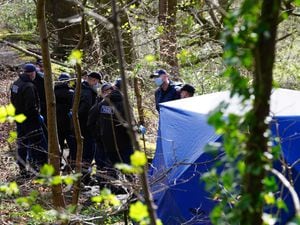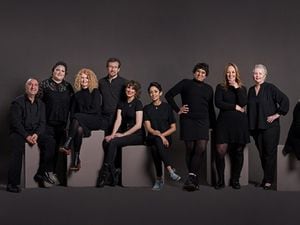Urgent review of terrorists released from prison following London Bridge attack
Usman Khan was freed halfway through a 16-year jail term before carrying out the atrocity.

An urgent review of terrorists released from prison has been launched in the wake of the London Bridge knife attack by Usman Khan, who was freed halfway through a 16-year jail sentence.
The 28-year-old convicted terrorist stabbed to death 25-year-old Jack Merritt and a woman in the knife rampage on Friday afternoon, leaving three other people injured.
Khan was on licence and wearing an electronic monitoring tag when he attended a conference on prisoner rehabilitation hosted by Cambridge University scheme Learning Together at Fishmongers’ Hall near London Bridge.
The attack has prompted the Ministry of Justice to review the licence conditions of every convicted terrorist released from prison, which Boris Johnson says is “probably about 74” people.
The Prime Minister told BBC One’s the Andrew Marr Show that the other individuals were now “being properly invigilated to make sure there is no threat”.
“I think it is ridiculous, I think it is repulsive, that individuals as dangerous as this man should be allowed out after serving only eight years and that’s why we are going to change the law,” he said on Sunday.
Pushed on what action is being taken, Mr Johnson said he did not want to go into the “operational details”, but said: “I’m sure people can imagine what we’re doing to ensure that 74 other individuals who’ve been let out early on the basis of this Labour change in legislation, they are being properly invigilated to make sure there is no threat.”
Mr Johnson said Khan was under “various conditions”, adding: “He had mentors, he had restrictions on his mobile phone, he had restrictions on internet access.”
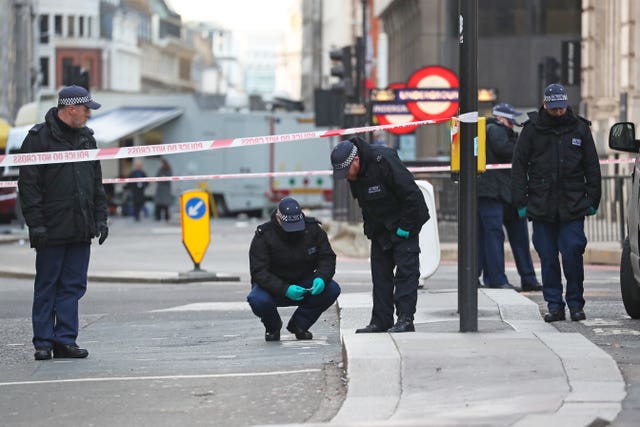
The medical director for the NHS in London, Dr Vin Diwakar, said on Sunday that one of the three people injured in the attack had been allowed to return home while the other two remain in a stable condition in hospital.
A line of police officers were seen on their hands and knees performing fingertip searches on the bridge on Sunday, which remained closed with vehicles and buses still stranded.
The Met says that such checks were a routine part of operations following a major incident and were “nothing out of the ordinary”.
Khan, who was living in Stafford, was given permission to travel into the heart of London by police and the probation service. He had also been allowed to travel to Whitehall earlier in the year.
Armed with two knives and wearing a fake suicide vest, Khan was tackled by members of the public, including ex-offenders from the conference, before he was shot dead by police on London Bridge.
Footage posted online shows Khan being taken to the ground as one man sprays him with a fire extinguisher and another, reportedly a Polish man who worked at the Hall, lunges towards him with a narwhal tusk believed to have been taken from the wall inside the building.
Khan was part of an al Qaida-inspired terror group – linked to radical preacher Anjem Choudary – that plotted to bomb the London Stock Exchange and build a terrorist training camp on land in Pakistan-controlled Kashmir owned by his family.
A list of other potential targets included the names and addresses of the Dean of St Paul’s Cathedral in London, then London mayor Mr Johnson, two rabbis, and the American Embassy in London.
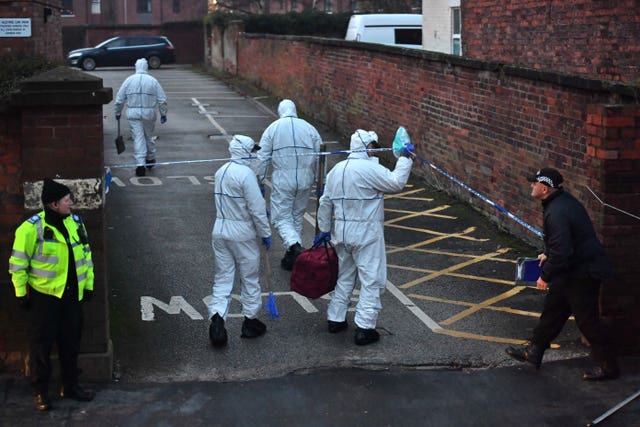
In February 2012, Khan, who had been based in Stoke-on-Trent, was handed an indeterminate sentence for public protection, with a minimum term of eight years – meaning he could have been kept in prison for as long he was deemed to be a threat to the public.
The sentence was quashed at the Court of Appeal in April 2013 and he was given a determinate 16-year jail term, with a five-year extended licence period, under legislation which meant he was released automatically halfway through the sentence.
But sentencing law changed later in 2012, and if Khan was given the same sentence today, he would have had to serve at least two thirds and be released only if the Parole Board agreed.
Despite the law change coming into force before Khan’s appeal, he could only be sentenced under legislation in force when he committed his offences.
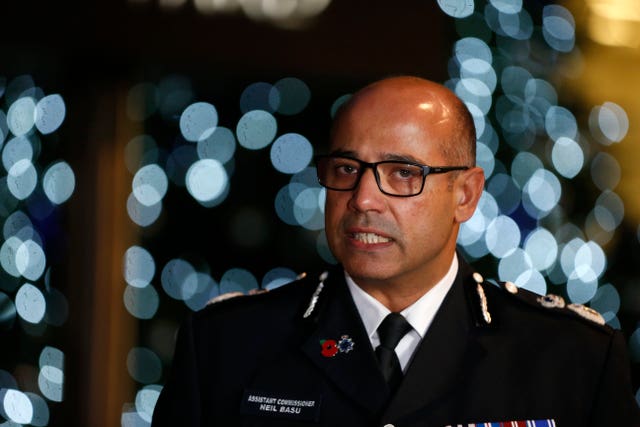
The UK head of counter-terrorism policing, Neil Basu, said he believed Khan had complied with an “extensive list of licence conditions” following his early release.
The Islamic State terror group claimed responsibility for the attack, saying Khan was one of its fighters, but did not provide any evidence.
No-one else is being sought over the attack.
Mr Merritt’s father David called his son a “beautiful spirit who always took the side of the underdog”.
Writing on Twitter Mr Merritt said: “He was an exceptional young man, and I’m only finding out the half of it now he’s gone.”

